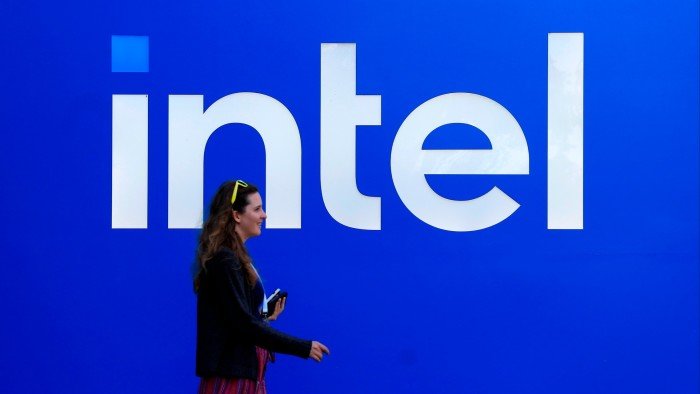Unlock the Editor’s Digest for free
Roula Khalaf, Editor of the FT, selects her favourite stories in this weekly newsletter.
Seen from the Oval Office, it’s not hard to make the case that the US government taking a huge stake in chipmaker Intel makes sense. Viewed from elsewhere, the plan is somewhere between pointless and dangerous.
It’s not that government and business shouldn’t mix, per se. The US chip sector is already an artefact of state support. Since the days of Fairchild Semiconductor, innovators have enjoyed contracts, grants, cheap loans and tax breaks galore. Electrical and electronic companies have received over $32bn since 1989, according to the Good Jobs First Subsidy Tracker, not including loans and roughly $50bn pledged under the CHIPS Act of 2022.
For a transactionally minded president, the calculus is pretty clear: given all that largesse, why not demand something back? Previous administrations presumably realised that rewards come in other forms, such as national prosperity and global greatness. But converting grants and other goodies earmarked for Intel into equity creates a more tangible return on that investment.

Strategically as well as financially, taking a stake in Intel must appeal. The company is too important to fail, since it still commands the only substantial US-controlled source of leading-edge chip production. The US government has on several occasions ended up with a stake in stricken businesses, from AIG to General Motors. Why not invest pre-emptively instead, if doing so might make failure less likely?
To an Intel shareholder, an investment from Uncle Sam may even come with modest benefits. The Trump imprimatur could lure other investors who wish to be favourably regarded by the administration — witness Japan’s SoftBank, which agreed to invest $2bn in Intel on Monday — or attract new customers for its computer chips. Cash won’t fix Intel’s past failure to innovate, but it will help counter the effect of its financial losses.
The risk is that government investors have an incentive to urge companies to do things other shareholders would rather they didn’t. For example, Intel recently slowed construction of its Ohio mega-plant, the kind of move that might prove harder with the government on the shareholder register. Ditto the idea of jettisoning Intel’s troubled third-party chipmaking business, which Citigroup analysts, among others, have often argued makes sense.

One important question is whether the White House really needs shares to get its way. Companies have generally kowtowed to President Trump readily without such linkages. They have scrapped diversity policies, tweaked products, flown to his Florida mansion and pledged huge investments. Trump’s recent fleeting call for Intel chief Lip-Bu Tan to be ousted undoubtedly focused minds.
In that sense, the government becoming an investor in companies it views as important — following on from direct interventions in steel and critical minerals — merely ratifies reality. When the White House calls, the CEO answers. But it’s a reality that investors have little reason to celebrate.
[email protected]
